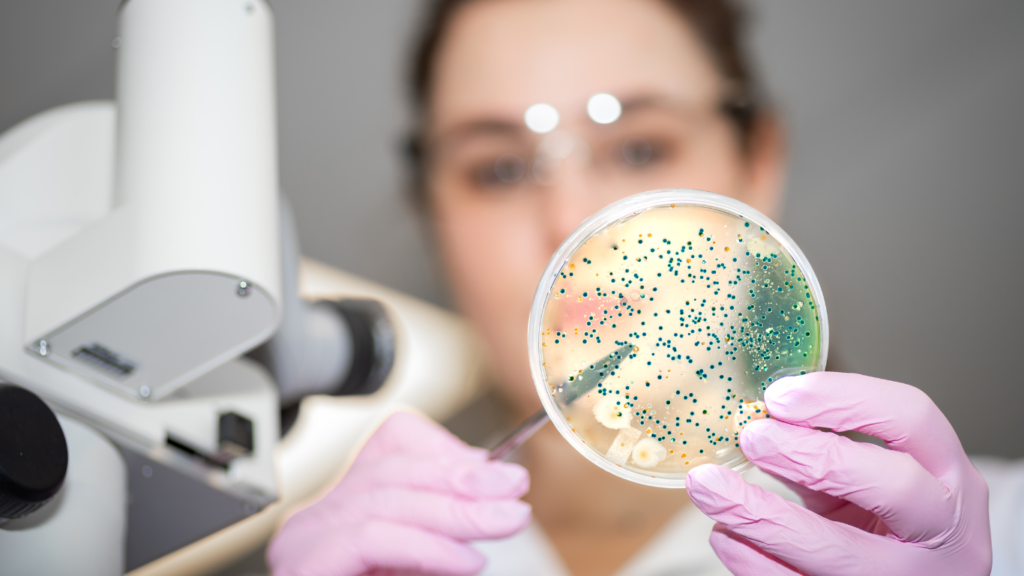
Can the Right Diet Reset Our Microbiome?
Crohn’s disease is a chronic inflammatory bowel disease (IBD) that affects millions of people worldwide. One proven therapy is exclusive enteral nutrition (EEN) – a special liquid diet that patients consume instead of solid food for six to eight weeks. This method has shown to be highly effective, yet until recently, the reason behind its success was unclear.
Now, researchers from the Technical University of Munich (TUM) and the LMU University Hospital Munich have uncovered the underlying mechanism – and are taking it one step further. A new clinical study is now investigating whether combining EEN with fecal microbiota transplantation (FMT) can improve long-term treatment outcomes.
What Happens to the Microbiome During Therapy?
The research team led by Prof. Dirk Haller (TUM) and Dr. Tobias Schwerd (LMU) discovered that the medium-chain fatty acids in the liquid diet have a positive impact on the microbiome. Specific beneficial gut bacteria multiply and contribute to reducing inflammation.
One key insight: when patients return to regular food after the therapy, the microbiome often reverts to its previous state – and inflammation flares up again. This is where the new approach comes in:
👉 After completing EEN, patients receive a capsule-based microbiota transplant to help preserve the positive effects and delay – or even prevent – relapses.
New Study: Microbiome Transplantation as a Beacon of Hope
The clinical study is being conducted in collaboration with the LMU Children’s Hospital in Munich and the University Hospital in Cologne. The microbiome capsules are derived from healthy, carefully screened donors and are manufactured at the University Hospital Cologne under the supervision of Prof. Maria J.G.T. Vehreschild.
💡 Key Research Questions
✔ How safe is microbiota transplantation after EEN?
✔ Is this therapy practically feasible?
✔ Can it sustainably maintain remission in the long term?
Prof. Haller explains:
“Fecal microbiota transplants have already been used successfully in other intestinal diseases. We hope this approach also holds great promise for Crohn’s disease.”
Participation in the Study
Individuals aged between 14 and 45 can participate – with plans to include children aged 8 and up at a later stage. More information on participation is available at www.een-rich.de.
Conclusion
This study has the potential to revolutionize the treatment of Crohn’s disease. If targeted nutrition and microbiota transplantation can sustainably alter the gut microbiome, it could open up a completely new treatment option for millions of people worldwide.önnte das eine völlig neue Behandlungsoption für Millionen Betroffene weltweit eröffnen.
Further Reading:
Studie: Häcker, D., Siebert, K., Smith, B. J. et al., Cell Host & Microbe (2024) – DOI-Link
Forschungszentrum: SFB 1371 „Microbiome Signatures“ – mehr erfahren
Also, certain foods may help reduce inflammation and support the gut microbiome:
The perfect smoothie for people with IBD: anti-inflammatory, gut-friendly & nutrient-rich
Kommentar verfassen